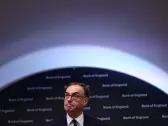The Context of the Speech
On Thursday evening, during his annual address at the Mansion House Financial and Professional Services Dinner, Bank of England (BoE) Governor Andrew Bailey delivered a speech focused on the challenges and opportunities surrounding Brexit. Bailey emphasized the importance of "welcoming opportunities to rebuild relations" with the European Union despite the complexities of the UK’s departure from the EEA. His remarks highlighted the need for the UK to address key economic issues while respecting the decision of British voters in the 2016 referendum that led to Brexit.
Key Points Discussed
The Current State of Economic Growth
Bailey acknowledged the ongoing challenges to the UK’s economic recovery, particularly in maintaining sustainable growth. He pointed out that since the 2008 financial crisis, the UK has faced a prolonged period of economic decline, which has worsened further due to the impact of the COVID-19 pandemic. According to BoE staff estimates, the average annual rate of growth of supply in the UK economy from 1990 to 2008 was 2.6%, with productivity contributing 2.2% and labour supply accounting for 0.4%.
Since 2009, the potential growth rate has fallen to 1.3%, reflecting a combination of factors including weaker productivity growth (0.3%) and labour supply contributions (1%). From 2020 to 2023, this potential growth rate further contracted to 0.7%, with productivity contributing 0.5% and labour supply accounting for 0.2%.
The Impact of Brexit on Trade Relationships
Bailey highlighted the significant impact of Brexit on trade relationships with the EU. He noted that changes in the trading landscape have weighed on the level of potential supply, particularly in goods but also to some extent in services. He stressed that while the impact has been more pronounced in goods than in services, it underscores the importance of fostering a robust and open economy capable of competing effectively with international markets.
The Need for Investment
To address the challenges facing the UK’s economic recovery, Bailey called on businesses to increase investment in key areas such as capital deepening and innovation. He emphasized that productivity growth is closely linked to investment, particularly through the accumulation of physical and human capital. According to data from the Organisation for Economic Co-operation and Development (OECD), the UK has been "almost continuously at the bottom of the G7 league table" in terms of business investment since the late 1990s, relative to other G7 countries.
Bailey also encouraged greater investment in public capital projects and highlighted the role of reforms being implemented by Chancellor Rachel Reeves in the recent autumn budget. Reeves has announced plans for significant public investments exceeding £100 billion over the next five years, as well as reforms to the UK’s fragmented local government retirement scheme aimed at fostering the development of eight "pension megafunds."
The Role of the Pensions System
Bailey addressed concerns about the adequacy of the UK’s pension system, which he described as "too fragmented" compared to other G7 nations. He emphasized the potential for increased investment in this sector through reforms that could unlock £80 billion in additional capital. Additionally, he discussed the broader implications of employer national insurance changes and their potential impact on employee paycales, while also touching on inheritance tax rules designed to help individuals avoid unavoidable bills.
Conclusion
In summarizing his address, Bailey underscored the critical importance of rebuilding and strengthening relations with the European Union in order to navigate the complexities of Brexit effectively. He called for a renewed focus on economic resilience, innovation, and investment as key drivers of long-term growth and stability. As the UK moves forward, these principles will be essential in ensuring that the country can continue to thrive despite the challenges posed by its departure from the EEA.
This concludes the rewritten version of the speech.
